



In its eleventh year in 2018, WSDM will feature a new VC and Industry day focused on the interaction of the search and data mining communities with the VC and Industry communities. A series of invited talks by prominent speakers will be mixed with panels on the topics ranging from the role of the data science in startups to the sharing economy. The panels will feature top Data Scientists from companies such as Google, Facebook, Amazon, Airbnb , and others. The lunch break will feature a company expo where 20+ companies will present their work, giving the WSDM attendants a chance to see data science and search applications in practice.

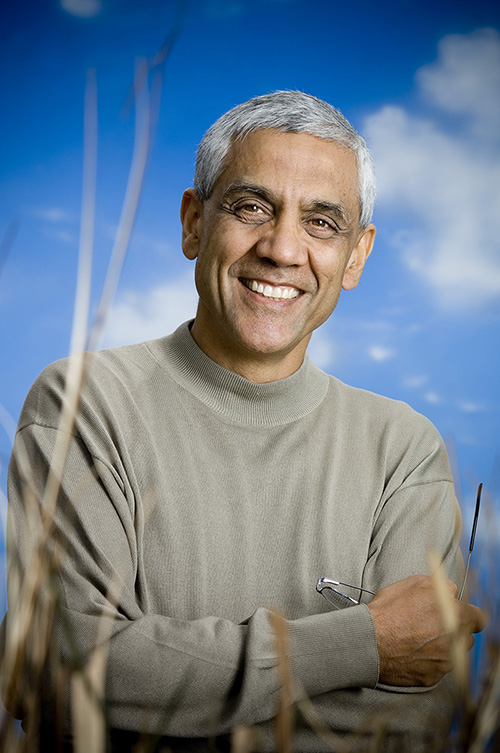
Khosla Ventures
Abstract: Andrei Broder will be the interlocutor.

SVP Research
Visa
Abstract: Visa's unique position as the world's largest payment network enables us to serve billions of consumers and tens of millions of merchants on a daily basis. These massive high-quality financial data provide valuable insights on how people conduct commerce around the world, and AI technology has the potential to unlock the hidden value in these data and drive innovations in the payments industry. In this talk, I will give an overview of the research opportunities and challenges for data analytics and machine learning in the context of payments data, and share our point of view on how AI can reshape the Future of Payments by delivering unique capabilities in scenarios such as fraud detection, authentication, and recommendation systems.
Bio: Dr. Min Wang joined Visa as the Senior Vice President and Head of Visa
Research in May 2015. In her role, she founded and now leads Visa Research, an organization that
conducts applied research on the most challenging problems in Payments and provides technical
thought leadership for the future of the industry. Visa Research is focusing on three research
areas: Data Analytics, Security, and Future of Commerce.
Prior to Visa, Min was a Senior Staff Research Scientist and Research Manager at Google,
Director of HP Labs China where she was named a Distinguished Technologist, and held senior
research roles at IBM’s Thomas J. Watson Research Center.
Min has published over 90 research papers in top peer-reviewed conferences and journals and
received several distinguished research awards for her work on data management. In 2009, she
received the ACM SIGMOD Test of Time Award. She has been serving as a board member of the
Computing Research Association (CRA) since 2016.
Min received her Ph.D. in Computer Science from Duke University and B.S. and M.S. degrees with
top honors, both in Computer Science, from Tsinghua University, Beijing, China.

Lumiata
Abstract: Reducing costs in healthcare and improving care delivery rests on the ability to predict individual disease with precision, accuracy and speed. This demands the ability to combine, interpret, and take action on highly complex structured and unstructured data, with minimal error. But, most organizations lack the skills and manpower to do so, leading to labor-intensive, costly and inaccurate processes. Artificial intelligence can introduce the automation, computation and precision needed to transform healthcare operations–it's no small endeavor and requires sophisticated infrastructures and expertise. Lumiata’s predictive AI models clinical science and medicine, and is able to predict individual disease for 2 million people in under 2 hours, from over 5TB of data, with over 80% positive predictive value. Drawing from Lumiata’s experience and approach, this session discusses how to build and apply a real-world, practical AI to extract clinical value from data in ways that can improve the business of healthcare.

Toutiao
Abstract: Mobile Internet and artificial intelligence (AI) technologies are bringing us to a new era of information dissemination. Information and knowledge are circulated in an unprecedented scale, speed, and depth, with ubiquitousness, immediacy, diversity, and sociality as the main characteristics. Founded in 2012, Toutiao is a company mainly based in China providing the largest information distribution platform in the world. Its AI-powered mobile apps now deliver personalized content to hundreds of millions of users based on their interests. The vision of the company is to build a world-wide information platform which understands the users the best, connects people and information in the most effectively way, and promotes creation and dissemination of information. The AI Lab of Toutiao is conducting research on machine learning, computing vision, natural language processing, and other AI technologies. The goal is to develop cutting edge technologies that can offer the best experiences to the users. In this talk, I will introduce Toutiao’s vision and practice in enhancement of information dissemination. I will particularly introduce the technically challenging problems which we are tackling.
Bio: Hang Li is director of Toutiao AI Lab, adjunct professors of Peking University and Nanjing University. He is an IEEE Fellow and an ACM Distinguished Scientist. His research areas include information retrieval, natural language processing, machine learning, and data mining. Hang graduated from Kyoto University in 1988 and earned his PhD from the University of Tokyo in 1998. He worked at NEC Research as researcher from 1990 to 2001, Microsoft Research Asia as senior researcher and research manager from 2001 to 2012, and chief scientist and director of Huawei Noah’s Ark from 2012 to 2017. He joined Toutiao in 2017. Hang has published three technical books, and more than 120 technical papers at top international conferences including SIGIR, WWW, WSDM, ACL, EMNLP, ICML, NIPS, SIGKDD, AAAI, IJCAI, and top international journals including CL, NLE, JMLR, TOIS, IRJ, IPM, TKDE, TWEB, TIST. He and his colleagues’ papers received the SIGKDD’08 best application paper award, the SIGIR’08 best student paper award, the ACL’12 best student paper award. Hang worked on the development of several products such as Microsoft SQL Server 2005, Office 2007, Live Search 2008, Bing 2009, Office 2010, Bing 2010, Office 2012, Huawei smartphones 2014 and Huawei smartphones 2017. He has 42 granted US patents. Hang is also very active in the research communities and has served or is serving top international conferences as PC chair, Senior PC member, or PC member, including SIGIR, WWW, WSDM, ACL, NACL, EMNLP, NIPS, SIGKDD, ICDM, IJCAI, ACML, and top international journals as associate editor or editorial board member, including CL, IRJ, TIST, JASIST, JCST.

Founder & CEO
CloudBrain
Abstract: CloudBrain is an AI startup to provide AI platforms to different industries, including mobile, securities, human resources, manufactures. After a brief introduction on CloudBrain, I will use one example in human resources to demonstrate one of our technical focuses: model interpretability.
Bio: Benyu Zhang is the Founder & CEO of CloudBrain. Before he founded CloudBrain in 2015, he worked in Facebook, Google, and Microsoft where he initiated and led multiple key products and research projects in search, ads, recommendation, and artificial intelligence. He has 45 published papers and book chapters, with more than 6000 citations. He held 150 US patents in Al related fields. CloudBrain builds industry-specific Al platforms to bridge the gap between Al research and industries. Right now, CloudBrain focuses on the finance, telecom, energy, and human resource industries, and has offices in China and US Silicon Valley.
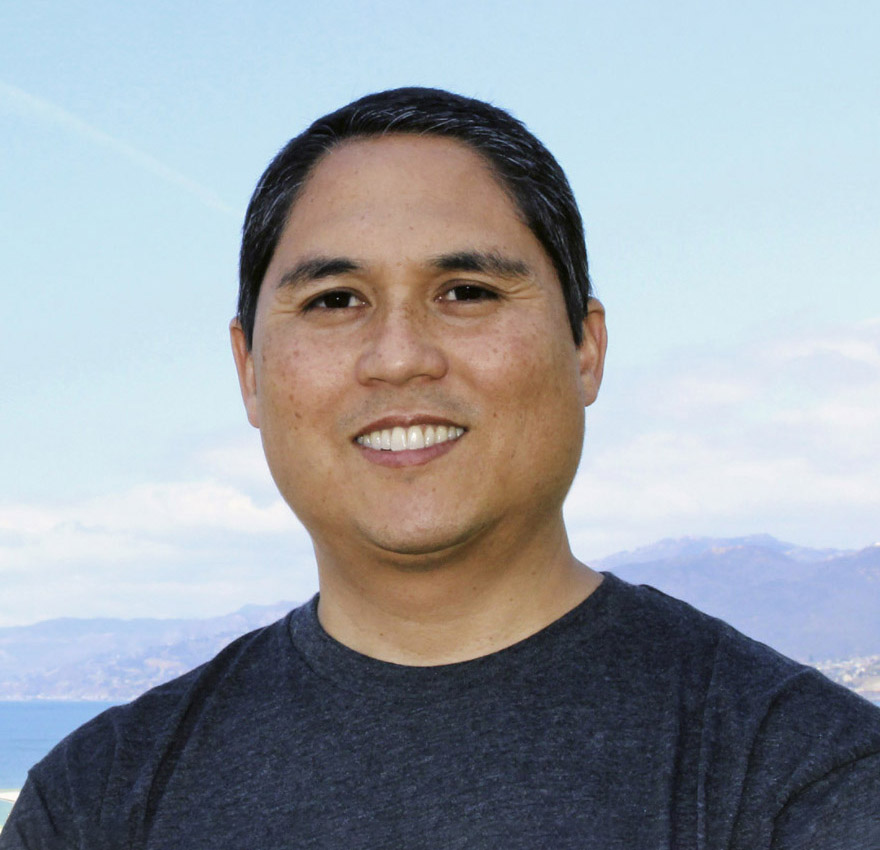
CTO
GumGum
Abstract: Images are everywhere. With today's access to big data and cheaper processing power, technologies such as deep learning can be leveraged to analyze visual content at scale. GumGum is a computer vision company with a mission to unlock the value of images and videos produced daily across the web, social media, and broadcast TV. You will learn how GumGum has applied its computer vision capabilities to serve a variety of industries from advertising to professional sports.
Bio: Ken Weiner is GumGum’s Chief Technology Officer. With over 15 years of experience in digital technology, Ken leads his engineering and product teams to build the leading computer vision platform for marketers. Ken was LA Business Journal’s 2015 CTO of the Year and was included in the 2003 InfoWorld Top 100 for his open source project uPortal, the leading open source web portal framework for the higher education community that is still used by top universities today. He takes an active role in the ad tech industry and can be seen speaking at conferences and participating in advertising industry groups like IAB’s Open RTB Working Group and LA Ad Tech Meetups. Prior to GumGum, Ken was the Director of Engineering at lead-generation platform LowerMyBills.com which was acquired by Experian in 2005. Prior to LowerMyBills, Ken was an open source software consultant, project manager, and instructor at Interactive Business Solutions (IBS) which was acquired by Unicon Inc. in 2003. Ken received a Bachelor of Science from UCLA and currently lives in Los Angeles, CA. Away from the office, Ken enjoys mountain biking, hiking, California native plants, jazz music, and playing the saxophone.

Cofounder & COO
Oben
Abstract: We have entered a new era of artificial intelligence where we can create intelligent avatars made from the digital profiles of our behaviors online. We call them Personal Artificial Intelligence, or PAI. A PAI is an intelligent avatar that looks, talks and behaves just like its human counterpart, and is secured on the blockchain. Project PAI is an open-source, blockchain platform designed to allow everyone to create, own, and manage their own PAI. Learn more at projectpai.com.
Bio: Adam Zheng is cofounder and COO of ObEN.com, an artificial intelligence (AI) company that builds a full-stack Personal AI on blockchain. ObEN believes that everyone in the world should have his/her own personal AI that looks, sounds and behaves like its human counterpart, and manages these AI rights on the blockchain that is able to support peer-to-peer AIs. Prior to ObEN, Adam cofounded Baihe.com and was a venture partner at Lightspeed Venture Partners. Adam received his Ph.D. from UC Davis and MFE from UC Berkeley.

Co-founder & CEO
Leap.ai
Abstract: Job search is hard and hiring is equally hard. It does not need to be in that way. There is a lot of data and pattern matching in recruiting. This makes it a prime space for AI application. Similar to any other AI applications, data is the key to success. In this talk, I will share Leap.ai's approach of capturing critical but missing data early in the recruiting cycle, and use AI to match talent with the right opportunities in real time.
Bio: Richard is co-founder and CEO at Leap.ai, a startup on building a career development framework to empower people to leap to their dream career. Before started Leap.ai in 2016, he was an Engineering Director at Google. He was a key leader in a wide range of product areas from Enterprise Search, Shopping, Offers to Project Fi. Dr. Liu obtained his Ph.D. in Electrical and Computer Engineering from Univ. of Florida and MBA from Southern Methodist Univ. He earned his master’s degree from Tsinghua Univ. and bachelor’s degree from Sichuan Univ. in China.

Aribnb
Abstract: Search ranking is a fundamental problem of crucial interest to major Internet companies, including web search engines, content publishing websites and marketplaces. However, despite sharing some common characteristics a one-size-fits-all solution does not exist in this space. Given a large difference in content that needs to be ranked and the parties affected by ranking, each search ranking problem is somewhat specific. Correspondingly, search ranking at Airbnb is quite unique, being a two-sided marketplace in which one needs to optimize for host and guest preferences, in a world where a user rarely consumes the same item twice and one listing can accept only one guest for a certain set of dates. In this talk, I will discuss challenges we have encountered and Machine Learning solutions we have developed for listing ranking at Airbnb. Specifically, the listing ranking problem boils down to prioritizing listings that are appealing to the guest but at the same time demoting listings that would likely reject the guest, which is not easily solvable using basic matrix completion or a straightforward linear model. I will shed the light on how we jointly optimize the two objectives by leveraging listing quality, location relevance, reviews, host response time as well as guest and host preferences and past booking history. Moreover, I will present our recent work on real-time personalization in search ranking, where we leverage listing embeddings trained on historical search sessions to enhance user’s future search experience by promoting similar content to the one user recently interacted with. Finally, I will talk about how we train and use query embeddings to provide better type-ahead suggestions and handle broad queries, in our case queries with no explicit location.
Bio: Mihajlo Grbovic, Ph.D. is a Principal Machine Learning Scientist on the Search Ranking Team at Airbnb. Prior to that, he was a Senior Research Manager at Yahoo Labs working on Advertising Sciences. He has more than 10 years of technical experience in applied Machine Learning, acting as a Science Lead in a portfolio of advertising technology projects at Yahoo and Tumblr. Some of his biggest accomplishments include building a Large-scale Interest and Gender Targeting Pipeline for Tumblr, delivering Email Classification Platform used in Yahoo Mail Smart Views that millions of people interact with every day, and introducing the next generation Query-Ad Matching algorithm to Yahoo Sponsored Search. Dr. Grbovic published more than 40 peer-reviewed publications at top Machine Learning and Web Science Conferences and co-authored more than 10 pending patents. His work was featured in Wall Street Journal, Scientific American, MIT Technology Review, Popular Science and Market Watch.
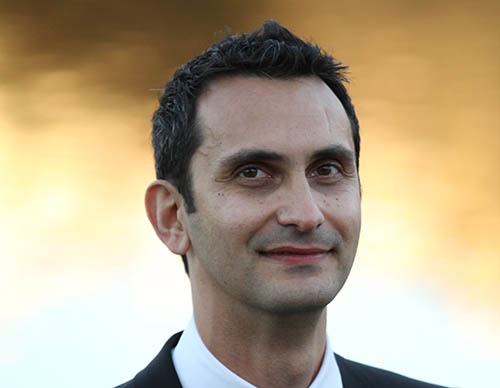
Engineering Director
Snap Inc.
Abstract: Snapchat at its core is the safest while funnest place for people to communicate with the ones they care about, and we believe advertising on Snapchat should follow the same philosophy by creating users experiences that are engaging, personalized, fun and privacy safe. Billions of ad requests are made from within the Snapchat app every day. Each of these requests requires either matching an existing ad to a user or actively choosing to not show ad at this time. This decision is made by taking into account many factors such as how much each ad is willing to pay, what events matter to each advertiser, how relevant each ad is to each user, how much we understand users, what they care about, where they go in the physical world, and what they consume across online and offline media, products and services and likelihood of achieving business objective for the advertiser. Moreover, we need to ensure that we’re properly balancing the revenue vs. user-sentiment trade-off, especially as our business continues to grow. We achieve these by processing petabytes of data and analyzing billions of users behavior signals daily. We use machine learning to create granular, context-aware predictive models for every single user. We build, measure and learn, and repeat this loop as fast as possible while remaining vigilant to details, anomalies and the impact on organic engagement of users on our platform.
Bio: Nima Khajehnouri is an Engineering Director at Snap. He runs monetization engineering platform at Snap. His teams work on all aspects of ad delivery platform, such as ad server, targeting, audience discovery and building, auction, marketplace, data science and analytics, ad ranking and machine learning, optimization, ad measurement and reporting. Prior to Snap he was a founding member and VP of engineering of NetSeer (acquired by Inuvo) specialized in concept-based intent ad-targeting solutions which he oversaw all engineering and product development functions. He received his PhD and M.S. in Computer Science and Electrical Engineering from UCLA and have more than 13 years of executive leadership experience in online advertising solutions, software engineering, big data, algorithms, machine learning, data science, large-scale data processing and data serving and cloud infrastructure.
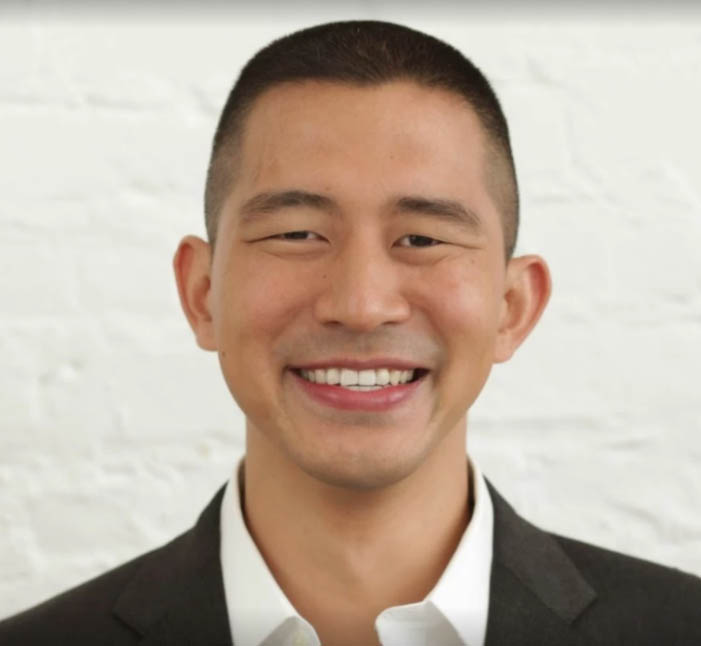
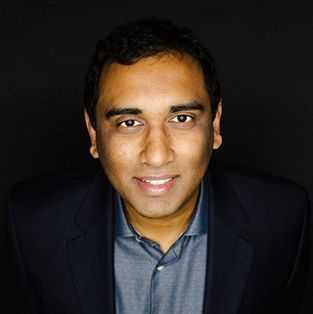
Sunil holds an MBA from Harvard Business School and a BS in Computer Science from the University of North Carolina at Chapel Hill. He is current Co-Chair of the NextGen Partners (the largest VC networking organization in the Bay Area) as well as the NextGen Board of the Computer History Museum. He also serves on the board of the Astronomical Society of the Pacific (the largest general astronomy education society in the world), the Harvard Business School California Research Center, and the Volunteer Council of the SETI Institute.


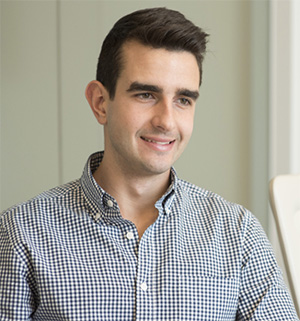
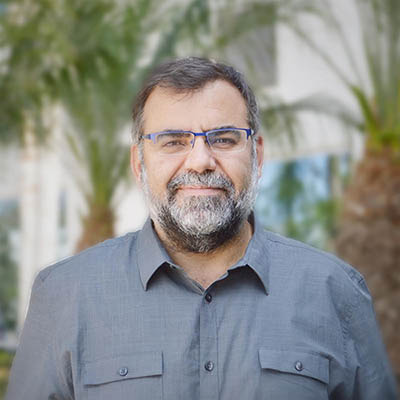


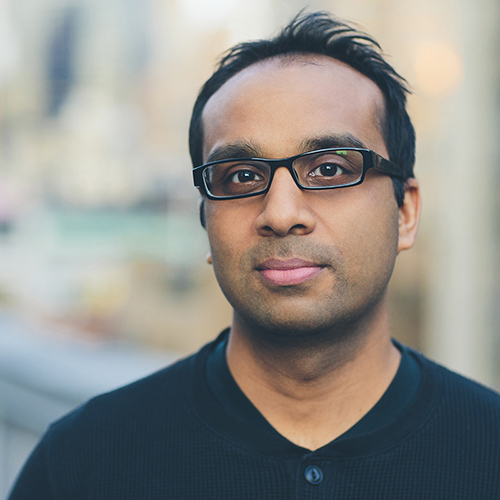
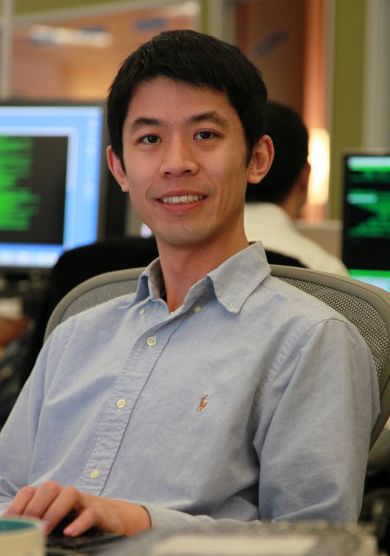 Rong Yan
Rong Yan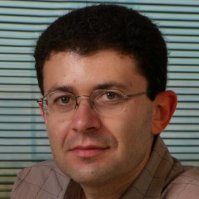 Evgeniy Gabrilovich
Evgeniy Gabrilovich